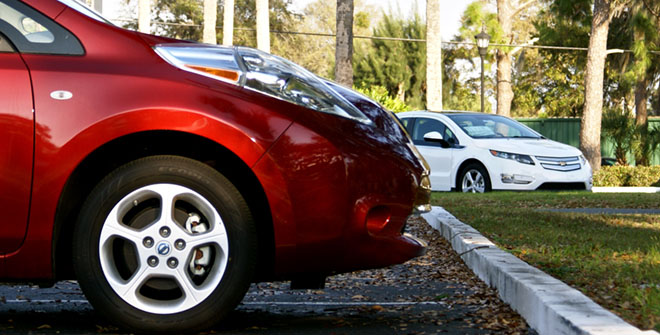It’s a fair question: Do EVs powered by grid electricity result in lower greenhouse gas (GHG) emissions than legacy ICE vehicles? On average, yes they do, according to studies by the Union of Concerned Scientists, the University of Minnesota, and Carnegie Mellon University. However, regional differences in the energy mix mean that EVs are much cleaner in some parts of the world than others.
A new analysis by a team at Carnegie Mellon provides another piece of the complex picture.
“Comparison of Life Cycle Greenhouse Gases from Natural Gas Pathways for Light-Duty Vehicles,” published in the ACS journal Energy & Fuels, finds that a battery electric vehicle powered with natural gas-based electricity emits on average about 40% less GHGs over its entire life cycle (including manufacturing, fuel extraction, and methane leakage) compared to a gasoline vehicle.
Bad news for those who prefer fuel tanks over batteries: the study found that hydrogen fuel cell vehicles (FCEVs) and compressed natural gas (CNG) vehicles have comparable life cycle emissions with gasoline. Other liquid fuels – methanol, ethanol, etc – have even larger GHG emissions than gasoline, “even when carbon capture and storage technologies are available.”
Unsurprisingly, the researchers also determined that SUVs have higher life cycle GHG emissions than passenger cars, no matter how they’re powered. A battery-electric SUV would be responsible for 41% higher life cycle GHG emissions than a smaller EV.
Source: Carnegie Mellon University via Green Car Congress

















































